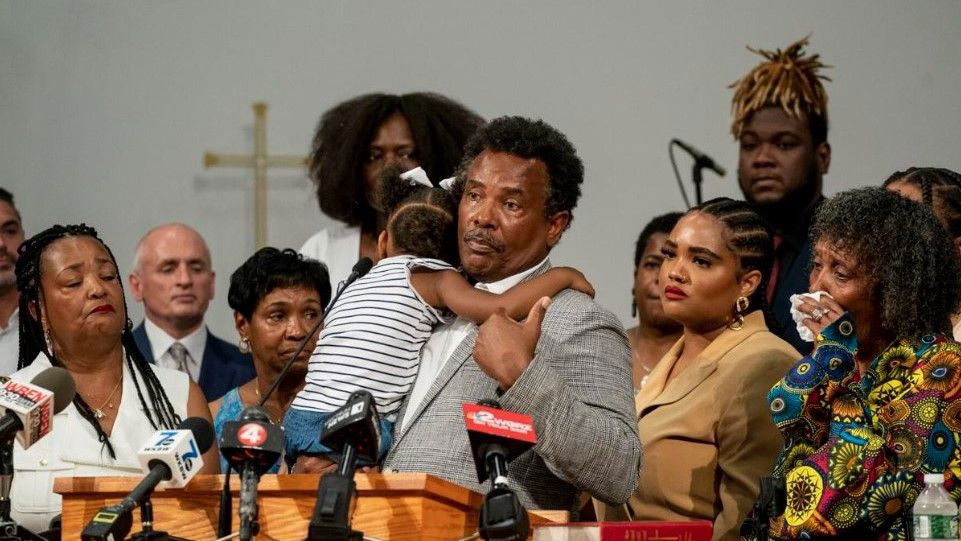Judge denies request to share evidence with victims’ lawyers in Buffalo mass shooting case

Garnell Whitfield
By Patrick Lakamp
Click here for updates on this story
BUFFALO, New York (The Buffalo News) — A judge has rejected a request that federal prosecutors share their criminal evidence against Buffalo mass shooter Payton Gendron with lawyers hired by the victims’ families.
Gendron’s public defenders made the request, which the civil lawyers have said would help in the families’ lawsuits against gun and body armor manufacturers as well as social media companies.
The federal public defenders sought to share with the families’ attorneys access to forensic images of Gendron’s cellphone, laptop and desktop computers, as well as any social media data in his computer files, text messages, emails and social media accounts.
Sharing the evidence would also allow the victims’ families to consider those who “indoctrinated him, encouraged him, armed him, protected him, and promoted his commission of this terrible crime” when deciding whether to recommend the death penalty for Gendron, the public defenders said in support of their request.
But prosecutors resisted sharing the evidence, warning it would be impossible to keep sensitive information properly secured during the criminal case against Gendron once it is used in civil lawsuits, adding that its prosecution against him takes priority over any pending or potential civil lawsuits arising from the Tops shooting that killed 10 people and wounded three others.
U.S. Magistrate Judge H. Kenneth Schroeder Jr.’s ruling backed the prosecutors.
“The defendant has complete access to all of the information obtained by the government in this criminal case for his use in preparing his defense to these charges and to a potential death sentence,” Schroeder said in his ruling. “While the court appreciates defense counsel’s interest in providing civil counsel with information that could inform opinions of the victims and family members of the victims as to the appropriateness of seeking the death penalty, the disclosure of any such information to the victims and family members of the victims is most appropriately left to the discretion of the U.S. Attorney’s Office.”
Federal prosecutors collected evidence from grand jury testimony, subpoenas and search warrants.
The federal prosecutors previously negotiated a protective order with Gendron’s federal public defenders that allowed information to be shared with the state prosecution and Gendron’s federal and state defense teams, which the U.S. Attorney’s Office has said led to Gendron’s prompt guilty plea in state court and a lifetime prison sentence.
Gendron still faces an ongoing federal prosecution for the racist shooting: a 27-count indictment includes 10 counts of committing hate crimes that resulted in death.
The protective order allows public defenders to show the discovery materials to potential witnesses and their counsel for purposes of defense and trial preparation, but only in the presence of a public defender. Notes may not be taken regarding the content of any of the evidence. Prosecutors said in their filing that the protective order does not allow for the defense team to review the evidence with civil attorneys for the purpose of investigating and preparing lawsuits.
The government said that has already happened – in violation of the protective order.
Schroeder ordered Assistant Federal Public Defender Sonya A. Zoghlin, Supervisory Assistant Federal Public Defender Anne M. Burger and Senior Litigator MaryBeth Covert to provide the U.S. Attorney’s Office the names of anyone representing the victims’ families who gained access to any of the evidence covered by the protective order, as well as when and for how long they were granted access, and what they reviewed.
Schroeder said the public defenders asked to modify the protective order “not to advance their defense of this criminal prosecution, but to facilitate civil counsel’s ability to pursue civil remedies on behalf of the victims and family members of the victims.”
“While defense counsel suggests that such civil litigation may ultimately develop mitigation evidence beneficial to defendant, the court has every confidence that any mitigation evidence which may be gleaned from the criminal investigation will be developed to its fullest potential by defendant’s learned counsel without need for the assistance of civil counsel,” the judge said in his order.
Families represented by attorneys John V. Elmore and Terrence M. Connors, among others, have already filed lawsuits, including one last week by seven families whose loved ones were among the 10 murdered at the grocery store, plus three shoppers and three employees hurt or in the store during the racist attack. Their lawyers called it a “landmark lawsuit” against social media companies for the companies’ roles in the mass shooting.
Elmore previously told The Buffalo News that the civil lawyers were barred from copying or recording the prosecutors’ evidence they looked at – and couldn’t even take notes by hand.
“They haven’t shared anything,” Elmore told The News. “They just allowed us to look at it.”
It was not possible for the civil lawyers to have memorized much if anything at all from what they saw, he said.
Please note: This content carries a strict local market embargo. If you share the same market as the contributor of this article, you may not use it on any platform.
